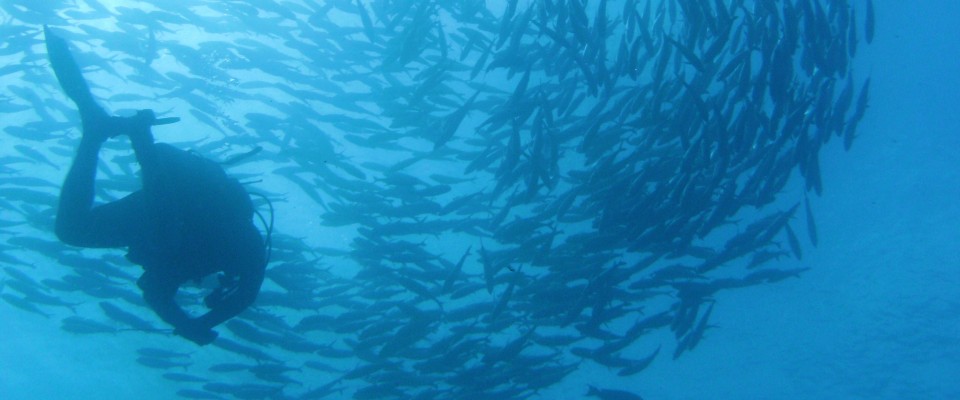
Buoyancy and SCUBA Diving
Buoyancy
As a diver one of the most important things that you can master is your buoyancy. Having good buoyancy makes your dive more enjoyable, reduces your air consumption and makes you less likely to damage your surroundings. Good buoyancy is something that is achieved through time and experience but also by practicing certain simple skills and by understanding what affects your ability to control your position in the water.
As you know your goal as a diver is to achieve neutral buoyancy. This can be affected by many different factors including your body’s fat content, your exposure protection, your level of physical fitness the gear you use, the type of water in which you are diving, the accuracy of your weighting system and the depth at which you dive.
Physical Condition – Your physical condition plays a lot into how buoyant you are. People at a higher level of physical fitness will breath air differently than those who are not as fit. The rate at which you breath can affect your buoyancy greatly, breathing in and out in shallow rapid breaths will make you unsteady in the water whereas breathing longer more controlled breaths will allow you to obtain a more balanced position in the water. Physical fitness is also a factor in relation to fat/muscle content. As you may already know, fat will float and muscle will sink. For this it is important that you concentrate on properly waiting yourself based on your particular body type.
Gear and Weight – As stated above weighting yourself properly is important. Knowing how to do so is vital. While there is no exact science to properly weighting yourself there are several general rules to follow in order to discover what is best for you. First consider your body type, remembering that the fattier parts will be more buoyant requiring more weight. If you are small, lean and athletic you will likely need much less weight that a tall, thick, heavy-set person. As a result of this, the amount of weight you require will likely change with any dramatic increase or decrease in fitness level. Another factor to take into consideration when weighting yourself is gear. Will you be using steel or aluminum tanks (steel is much heavier requiring less added weight)? Will you be wearing exposure protection and what type? Will you be taking a Camera with you (cameras are generally quite buoyant)?
All of these are factors to consider when thinking about how much weight you will require. Most dive shops will have instructors and dive masters to help you in this decision but the only true way to get a proper weight is to test it out. In full gear enter the water, release all air from your BCD, take a normal breath and hold it in, as a general rule, if you float around eye level you should be properly weighted. The more you dive the more you will understand your body and your buoyancy.
Exposure Protection and Dive Depth – Another thing you must consider when working on your buoyancy is what type of exposure protection (wetsuit) you will be wearing. Achieving perfect buoyancy is most easily done with no exposure protection, however diving without a wetsuit is not always the most comfortable or the smartest idea. Consider the type of suit you will wear and try to not over protect yourself. The more neoprene that you wear the more buoyant you will become, a 7mm suit is harder to dive in than a 3mm. Likewise a full body suit will be more challenging that a shorty. Keep in mind also that neoprene compresses as you dive something that is very buoyant on the surface will be much less buoyant at 20 meters depth and you will have to account for this throughout your dive using your BCD. The difference in buoyancy from surface to depth increases with the thickness of the neoprene, there will be more change in a 7mm than in a 3mm suit. As a suite ages and is used excessively this compression will be less dramatic.
Environmental Conditions – Your buoyancy will also be affected by the environment, most notably the type of water in which you are diving. Diving in fresh water will require less weight than an ocean dive due to the density of the water. Keep in mind that salt content, which is what affects the density, varies from place to place. Currents can also affect your buoyancy by pushing you up or down, for this you must learn to control and compensate with your lungs.
Lastly, concentrate on breathing, long outbreaths, relaxed movements and lazy diving will both decrease your air consumption and allow you to control your buoyancy with more ease.
